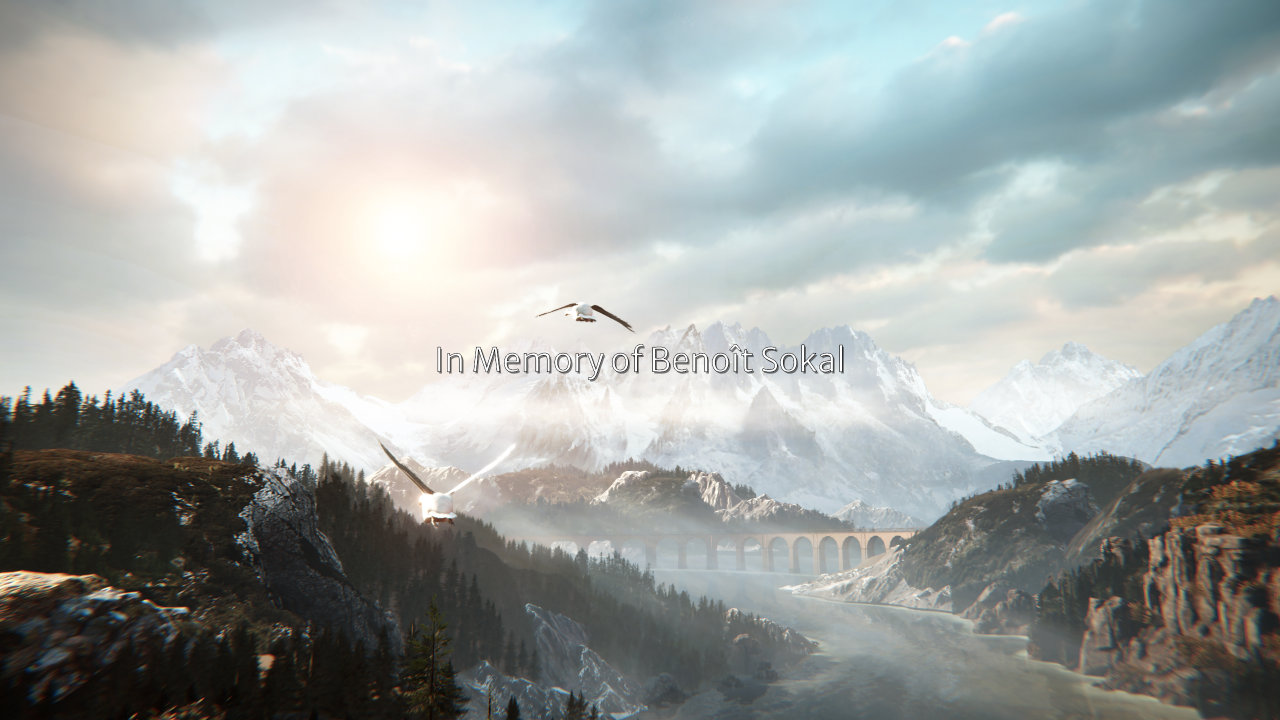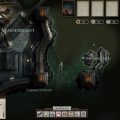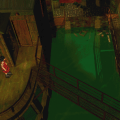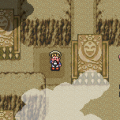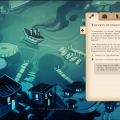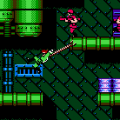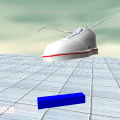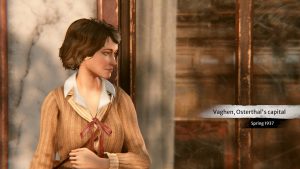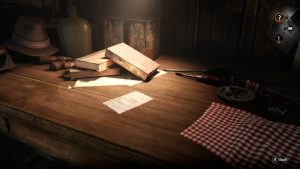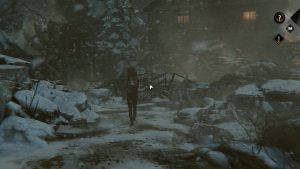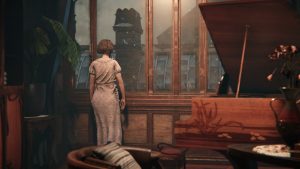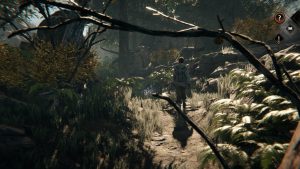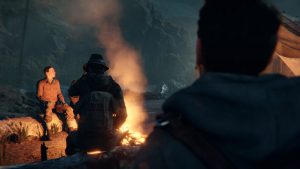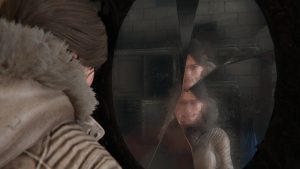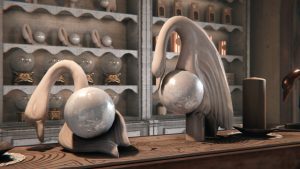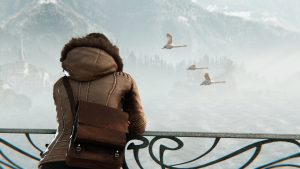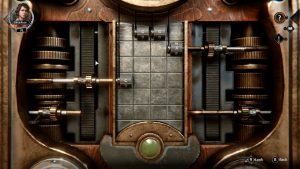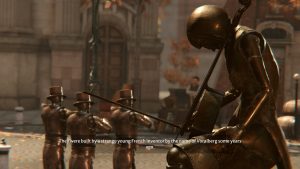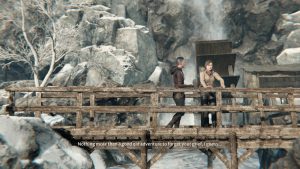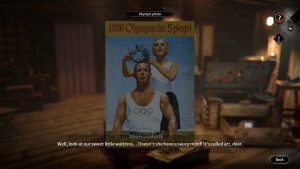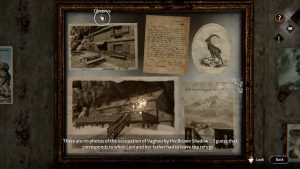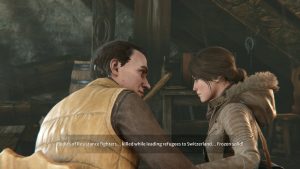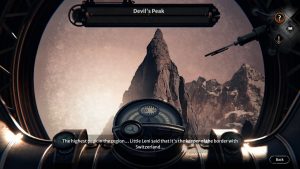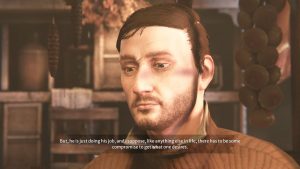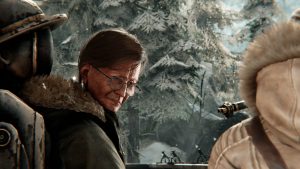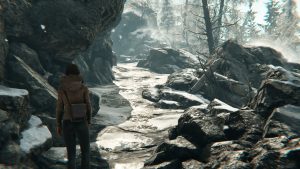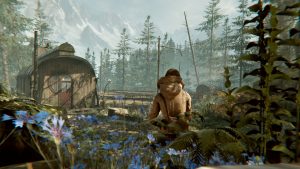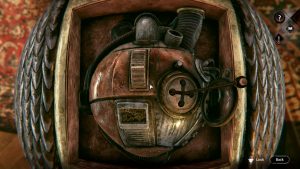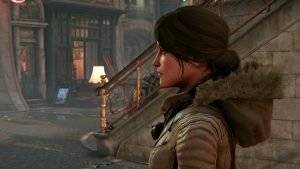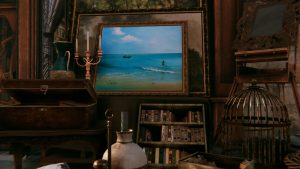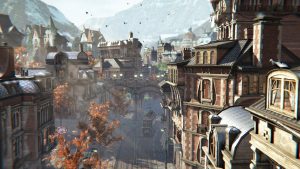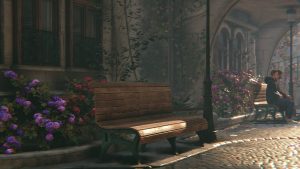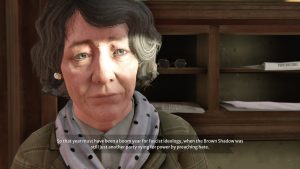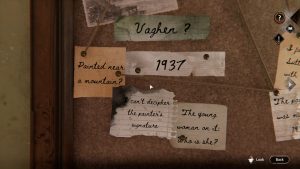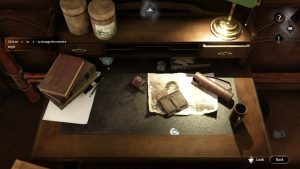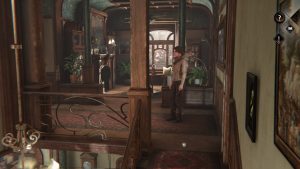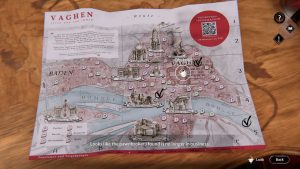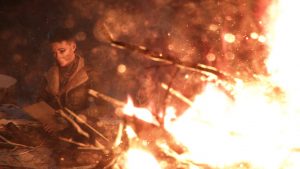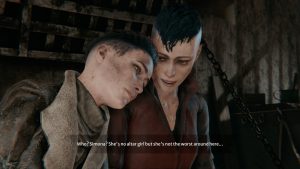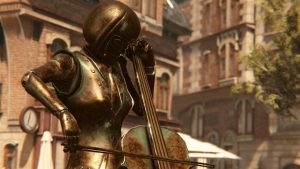- Syberia
- Syberia II
- Syberia 3
- Syberia: The World Before
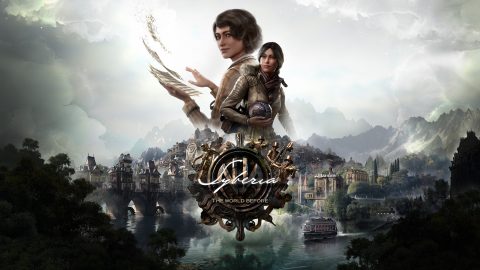
Well, we got a Syberia 4. However, it looks like this really will be the end of the series this time, not because of this entry being bad (it’s quite the opposite), but because of Sokal’s passing during its development. This is the last game he’s worked on, and everything the game does makes sure to wrap up every lingering thread and plot line (though if you wanted to see the detective character, you had to go get a subpar DLC for 3). All the while, it managed to explore a brand new mystery, deconstruct and examine Kate as a character, and give one of the biggest emotional gut punches you may ever experience in an adventure game.
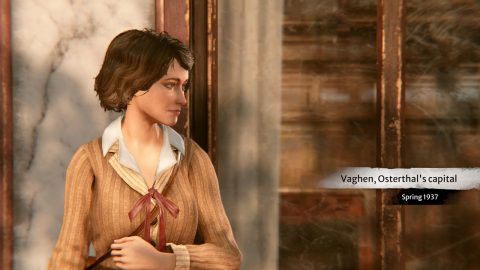
Syberia: The World Before shifts gears by starting in the 1930s in the fictional country of Osterthal, as a girl named Dana Roze hurries to the musical academy in the capital city of Vaghen. Her way of life is being threatened with the rise of the fascist party The Brown Shadow (it’s the Nazi party, the game is not at all subtle about it, just alternate history weirdness), who are aggressive towards her lineage, the Vagerans. Thankfully, a skint at a mountain refugee before she starts school will get her away for awhile.
Meanwhile, in the present, Kate has spent a long while in salt mines after being captured by the militia at the end of Syberia 3, growing a relationship with Russian prisoner named Katyusha. She’s managing to survive the harsh conditions, but a letter sneaked in by that detective who’s been on her tail informs her of her mother’s death, and that about breaks her. As Dana struggles against a looming war in the past, Kate ends up escaping the mine and discovering a painting of Dana – who many point out, looks quite a bit like her. With Katyusha’s death during their escape, Kate is spurred on by her idea to find out about the mysterious painting girl, chasing another castle in the sky while running from the grief consuming her and her old life that refuses to leave her alone.
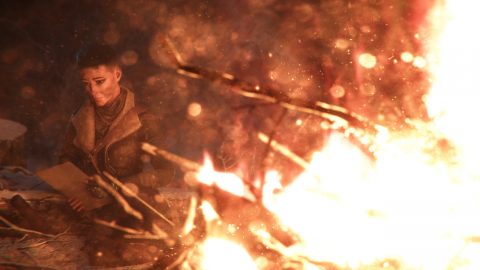
The World Before is, without a shadow of a doubt, the best game in this series by a huge margin. The puzzle design is good to great. The visuals and score are still outstanding. The voice acting has improved by leaps and bounds (even if having voice actors do old voices of their characters at a few points doesn’t quite work as intended). Most importantly, the story nails every single idea it attempts, and manages to make Kate a legitimately relatable character with a great deal of emotional depth. While there are faults worth discussing, they’re quite few this time around.
Kate still has a habit of getting stuck on objects, but it’s not nearly as suffocating as the previous game, due to wider areas and less backtracking. There’s maybe been a tad too much streamlining, with a focus on set-pieces and smaller areas, but this works out in the end by letting the team focus far more on the details and cut back on frustrating or drawn out segments.
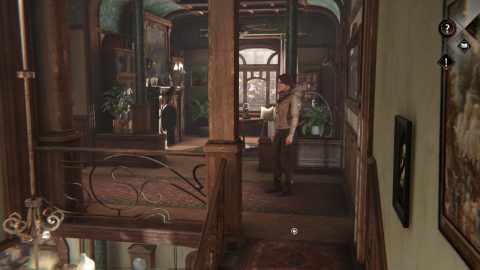
Some of Sokal’s less than stellar representation problems remain, this time with the return of his fat villains crutch, but aren’t as bad as previous releases, helped by the Youkals having no appearance here beyond short mention. The one thing that’s really difficult to go light on is Katyusha’s death, what with an openly lesbian character being removed from the story at gunpoint for Kate’s character growth. Still, her death is given some gravity, and she gets some dialog after her death in the form of a vision pushing Kate to continue moving forward, and both the script and the actresses really sell how close the two were. There is respect and sympathy there, but she could have still been given a smaller role in the story by just having her severely injured and sidelined for a long chunk.
Despite these issues, the game is a big step up in nearly every way from the past entries, but it only works so well as a story because of those previous adventures. Kate is given the spotlight in a very personal quest, having to deal with some extremely serious trauma and emotional turmoil as people ignore her wants and desires, yet still make very valid criticisms. All of this is moved along with the core mystery of Dana’s life, as you get glimpses of the past at set points in playable segments, who gets her own satisfying arc and adventure.
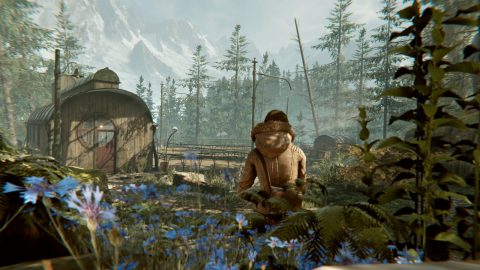
The stories also intersect beautifully as they go on, creating an ending that will have you sobbing (helped by the continued amazing compositions by Inon Zur), and then leave you with a big, dumb smile as the credits start. If Syberia is done creating new adventures, this is the perfect way to cap it all off. That’s not even getting into how it manages to weave in the more fantastical elements of the series, from Hans’ many contraptions around Vaghen to a genuinely surprising twist in the final chapters that is equal parts bonkers and fitting for this franchise.
A first for the series is that the gameplay is actually additive and supportive of the core story, where it was usually just there for the sake of the fact it had to be a game and thus have gameplay. The puzzles are genuinely satisfying this time, with set points even having you play as Dana in the past to find clues that will help you as Kate in the present, allowing you to switch between them. The solutions are logical and fun to figure out, with the messing with contraptions bits working as a more tactile puzzle or parts of a larger puzzle.
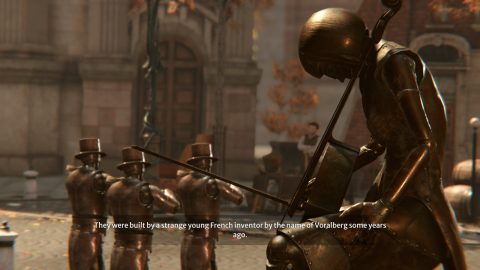
The game also makes use of a slower pace to really take in its environments and atmosphere, even having set moments where your character sits and rests and takes things in with shifting camera angles, only getting back up when you choose to continue. It an appreciated detail, making a point of giving you a chance to appreciate the series signature amazing vistas, showing off the wonders of nature and the creations left behind by Hans. It also gets you in the proper mind set that you should stop to smell the roses and not rush to the finish line. This is further pushed by areas constantly being reused with differences each visit due to the multiple time periods you experience.
Where Syberia 3 often felt confused in what it was trying to do, The World Before manages to keep you engaged by having a strong clarity of purpose. It wants you to take in the world, the history of it, and uses that to further feed the impact of the main story. The history of the world, of Vaghen, of Kate’s family, is intertwined with your own experiences in it, what you take notice of and see. It makes everything feel more personal, and makes you feel more like Kate does, taking in the wonder of everything while trying to find meaning in it. In the end, that chase, that search for adventure and mystery, seems to become the real point, and not just the goal of that adventure.
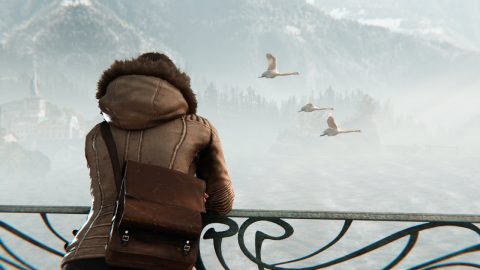
It’s a great re-contextualization of this entire series and the stories told, and finally makes Kate click as a character in her own right. There are so many memorable moments, echoing into future events, giving them a weight they wouldn’t have had otherwise. Even if you can see where this is all headed, the impact of revelations still hit with the strength of the emotions portrayed. The execution is absurdly well handled, even with odd jank here and there in the animations or limited framing of certain scenes. It’s a team that knew exactly what they wanted to do and made sure to work towards that goal with understanding of how to do nearly everything from early on. Or, at least if feels like that.
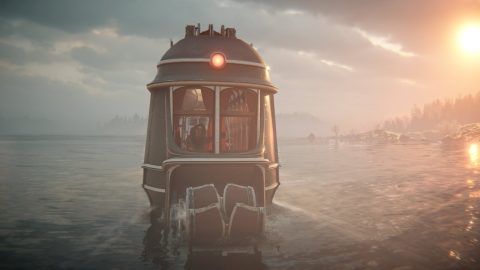
Syberia: The World Before is simply a beautiful game, the sort of thing that comes from decades of experience, ambition, and love for a medium. Benoît Sokal left us with one of the best stories of his entire career, and the team behind it did everything they could to leave their own mark and bring it to life. It is, quite simply, the best game of the series, but one that only exists as it does because of what came before. It is a celebration of every aspect of those previous tales, a perfect encore that few can manage. The fact we got a forth Syberia was unexpected. The fact that game ended up being this polished and satisfying feels like a miracle, and every artist endeavors to leave something as good as this as a symbol of their legacy.
